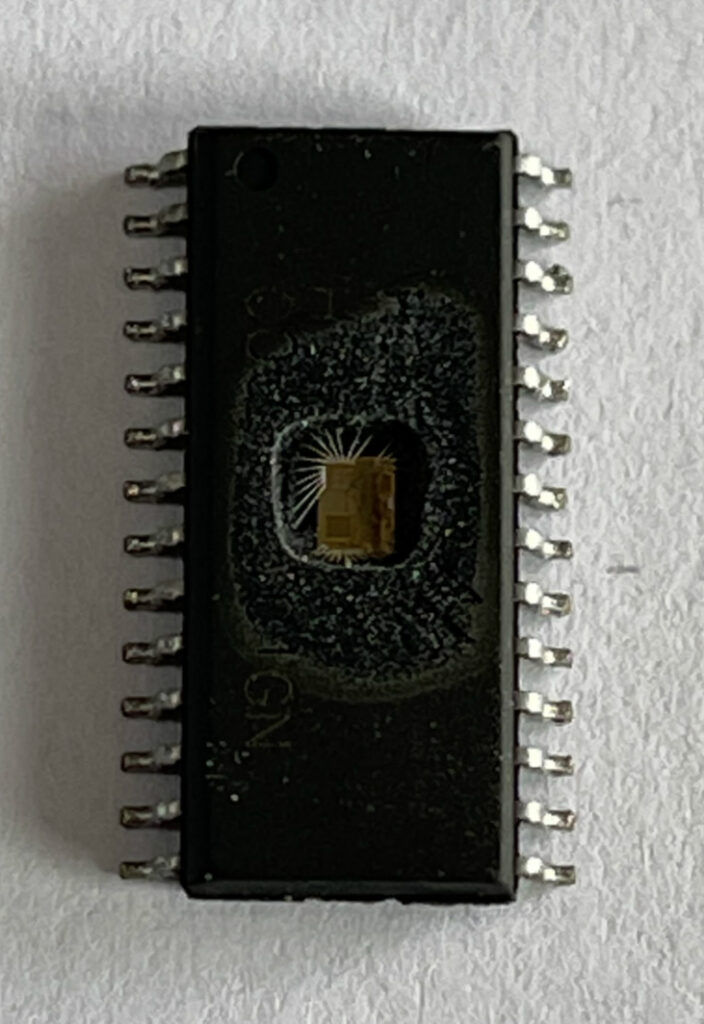Posts Tagged ‘öffnen Mikrocontroller-Eeprom-Heximaldaten’
 Unlock ARM Microcontroller STM32F070RCT6 Secured Flash Memory
Unlock ARM Microcontroller STM32F070RCT6 Secured Flash Memory
Unlock ARM Microcontroller STM32F070RCT6 Secured Flash Memory needs to use focus ion beam to disable its fuse bit, extract arm microprocessor stm32f070 flash memory data and clone the heximal to new stm32f070 MCU;

External interrupt/event controller (EXTI)
The external interrupt/event controller consists of 23 edge-detector lines used to generate interrupt/event requests. Each line can be independently configured to select the trigger event (rising edge, falling edge, both) and can be masked independently in order to replicate arm mcu stm32f105 embedded flash firmware. A pending register maintains the status of the interrupt requests. The EXTI can detect an external line with a pulse width shorter than the Internal APB2 clock period. Up to 140 GPIOs can be connected to the 16 external interrupt lines.
Clocks and startup
On reset the 16 MHz internal RC oscillator is selected as the default CPU clock. The 16 MHz internal RC oscillator is factory-trimmed to offer 1% accuracy. The application can then select as system clock either the RC oscillator or an external 4-26 MHz clock source.
This clock is monitored for failure. If failure is detected, the system automatically switches back to the internal RC oscillator and a software interrupt is generated (if enabled) after decrypt arm mcu stm32f105 flash memory binary file. Similarly, full interrupt management of the PLL clock entry is available when necessary (for example if an indirectly used external oscillator fails).
The advanced clock controller clocks the core and all peripherals using a single crystal or oscillator. In particular, the ethernet and USB OTG FS peripherals can be clocked by the system clock.